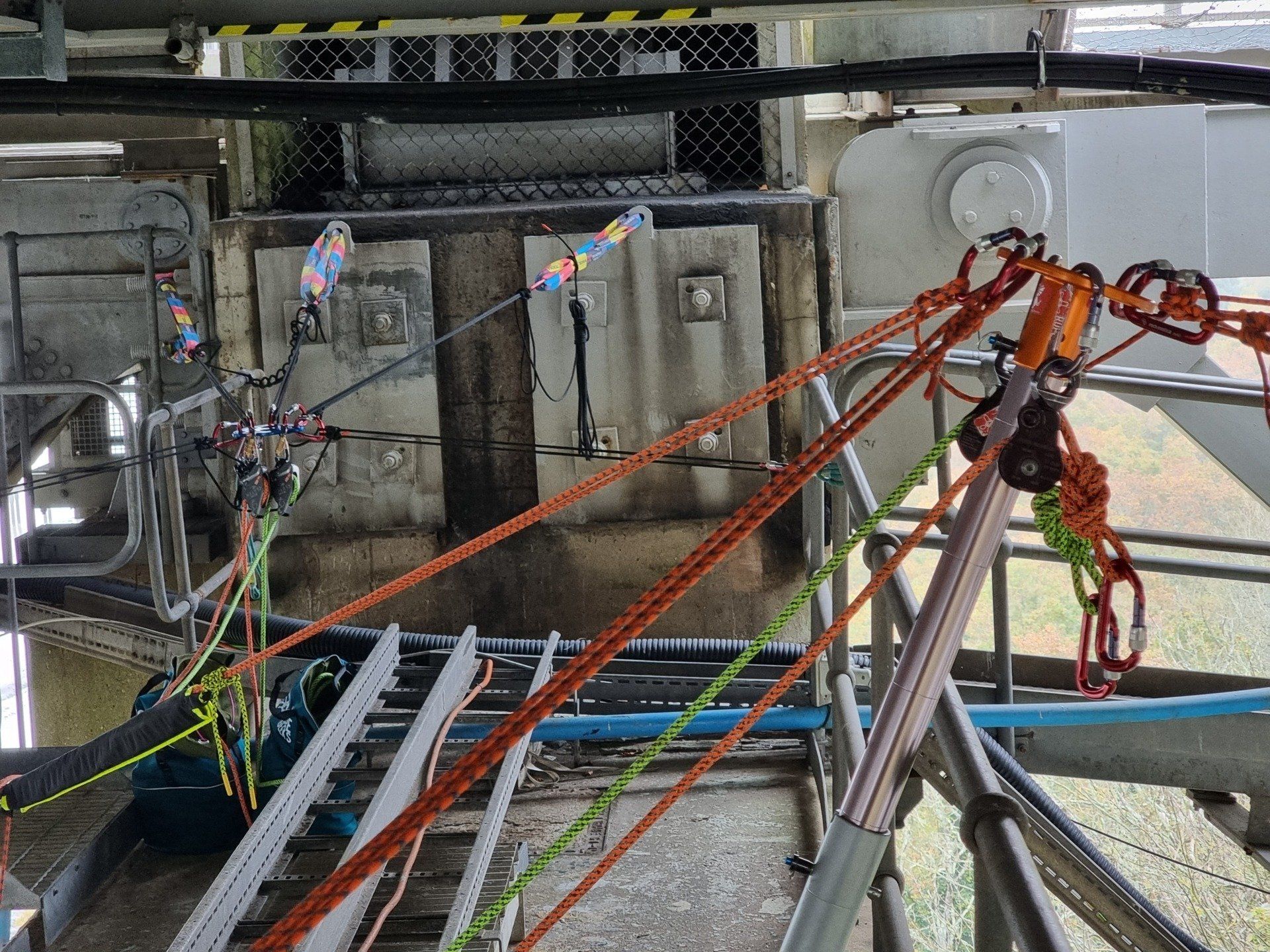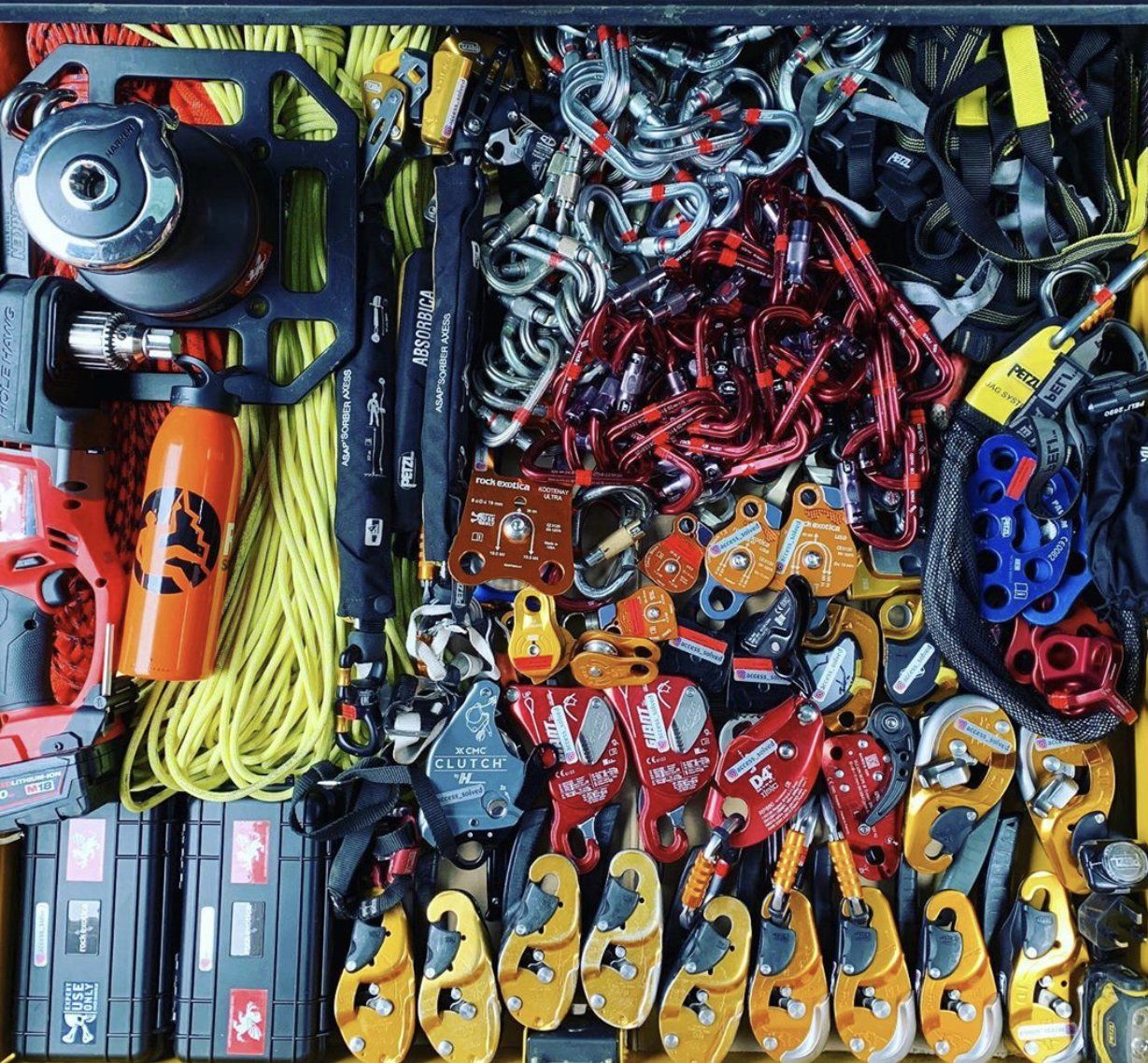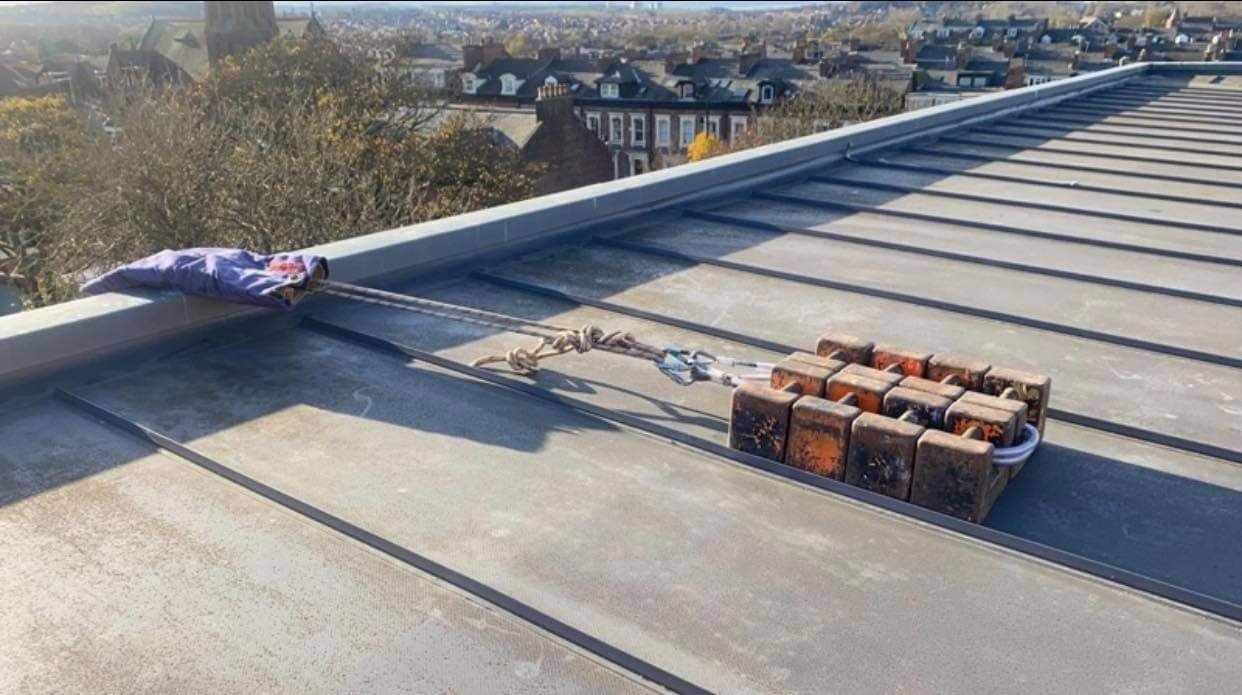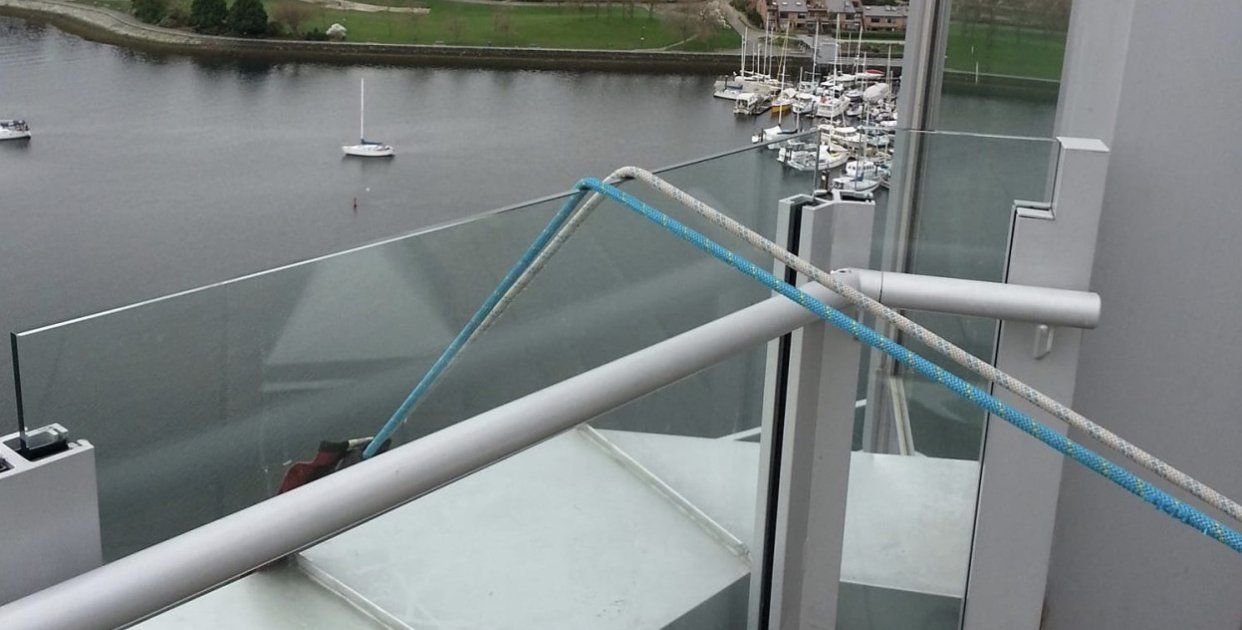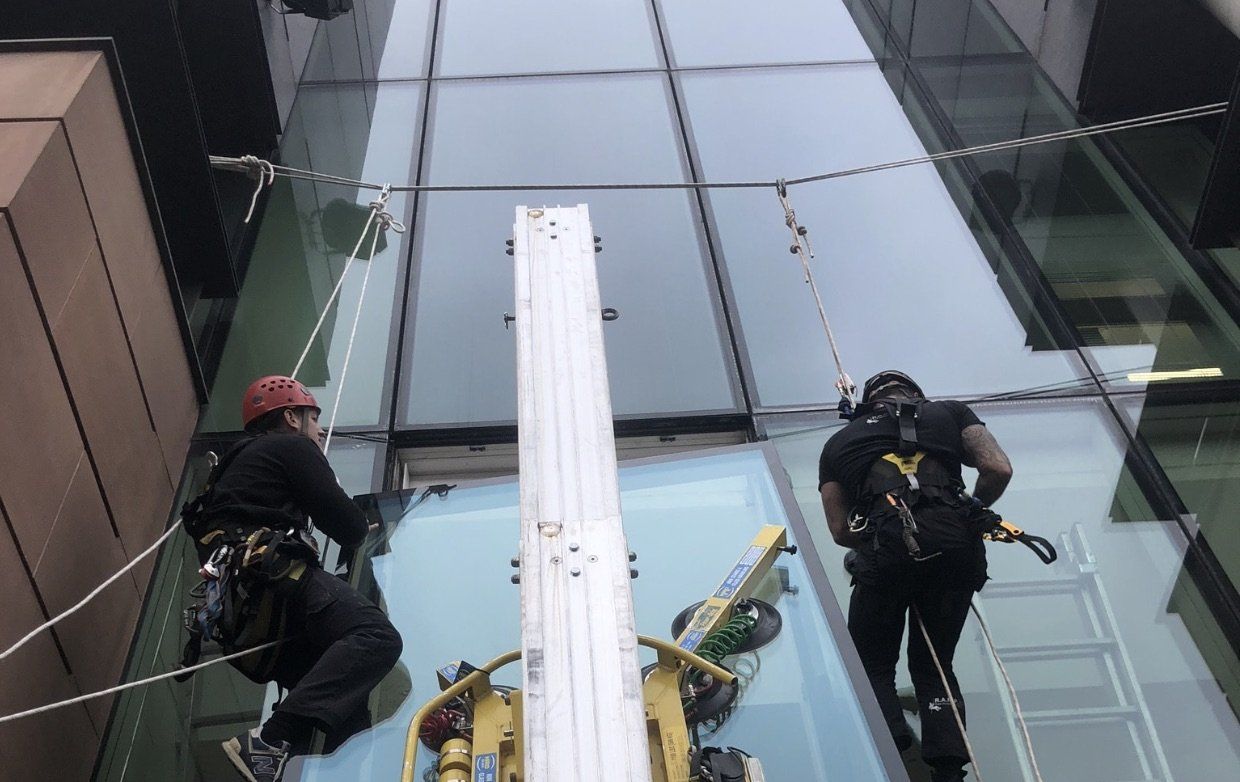Time for change: Where is the Rope Access Industry headed?
A while ago I wrote a post asking for peoples views and opinions on the Rope Access industry. The general consensus was that things need to change. That is not to say that there were parties that feel that everything is fine how it is. And it possibly is in certain companies and how individuals work.
The Rope Access Industry is a microcosm where we find the good, the bad and the damn right dumb!
I was interested to see if people shared common views and opinions, starting from being deemed "competent" to the working practices of their own company or employer.
Things like; Is the course too short? Does the course not cover enough? is it too cheap? Should it be similar to an NVQ? Should there be a Level 4? Should more information be available to/and should a greater appreciation be shown by clients? Should there be third party auditors for all rope access works whether association members or not?
Should there be a rating system for training centres? Should Instructors and Assessors have formal teaching and assessing qualifications?
Will IRATA's RAMRASS (if it ever comes to fruition) help in ensure works carried out are done both safely and compliantly? I think it will raise awareness of the short fallings of some Levels 3's in regards to health and safety knowledge and supervisory skills. We all await eagerly for more information in regards of cost and time frames for this scheme.
Since writing the draft version of this I have embarked on a new chapter. I am currently working towards my IRATA instructor ticket. A big thank you to Iain and Mike at Belay Rope Access Ltd down in Newhaven, East Sussex, UK for giving me a fantastic opportunity. (https://belayropeaccess.co.uk) This has given me a whole new appreciation for another side of Rope Access that not every technician will see. The way in which different people learn in different ways, The difference teaching styles can have on learning outcomes. It has also shown that there are many correct/safe ways to complete a task/technique or manoeuvre but more shocking to myself is when technicians turn up having been trained else where and have been shown the wrong/unsafe ways or being at a level that is above that of their actual competency.
A question that I often ask myself after seeing posts on social media is why does it seem many have a "course/assessment" way of doing things that seems to get put away when it comes to day to day working practices? I have mentioned in a previous article Negligence? Incompetence? Ineptitude? Ignorance? These are the words I would use to describe the companies and individuals that consistently fail to act in a safe manner. But I believe there is another word.....Laziness.
Laziness may reflect a lack of self-esteem, a lack of positive recognition by others, a lack of discipline stemming from low self-confidence, or a lack of interest in the activity or belief in its efficacy. Laziness may manifest as procrastination or vacillation. In other words not being able to complete the task safely because of an inability to choose the correct method or fearing failure to complete (ie not being paid). How many people can relate to "do the job or leave it and not get paid" So they just rig to something that isn't actually suitable.
Please feel free to make contact with me with your views and comments,
So starting with training:
Course Length & Cost
Is at least 30 hours training over a minimum of 4 days enough? Is that enough time to get a novice to a level of "competency"? Is it enough time to take a Level 2 up to a level of "competency" to become a Level 3?
In my opinion this is totally dependent on the individual and whether the instructor has employed the correct teach/learn strategy. Sure some new Level 1's get it by Tuesday, You can see they have grasped the information from the demos and can execute accordingly. Other naturally will take longer and some will find that it just isn't for them.
Competent: having the necessary ability, knowledge, or skill to do something successfully.
Everyone likes a bargain! Myself included. But cheap doesn't mean value for money. Could it be that there is an abundance of poor practice because the course is cheap? is it creating the adage "dopes on ropes"?
I have recently seen courses for £400.00 plus VAT, Does this attract the wrong type of person to the industry? What are the trainers/instructors being paid? Compare this to a ISO/BS Rope Access course (which ultimately is aimed at technicians operating in more limited scopes of work) where the price ranges from £690.00 to £864.00 plus VAT.
Are we looking for a ticket/certificate that is just an easy pass, done in the shortest amount of time or are we looking for something that is revered and seen as a real achievement. A sign of quality!
Should a revalidation cost the same as an upgrade? Everyone will have their own take on this one. If you are a Level 3 rope access supervisor and you require 4 days training before being assessed are you really a competent Level 3? Should you be completing rescue training and other CPD (Continuing Professional Development) between revalidation, in my opinion yes you should! I think it would be food for thought to may be look at offering assessment only for competent professionals.
Training centre rating: Not all centres are equal!
I've been to a few centres over the years and I can say with confidence that not all centres are equal!
Again everyone is different and will no doubt have their own opinion. For me I want to be taught something new when I go on a course. I don't want to be left alone with trainers saying "Oh you know what you are doing, just practice what you want and then you can leave at 2pm". Especially if you are paying full course fees.
Does what the training centre looks like matter?
In my opinion "Yes, most definitely".
If the centre you are training at only has one area where a rebelay/re-anchor can be rigged are you fully able to understand when and where to use it? Same could be said for single and double deviations, rope to rope etc
Training centres that have a number of areas where manoeuvres and rigging can be attempted and completed will ultimately add to the competence level of the individual. Again this goes hand in hand with the imagination and competency of the instructor/trainer.
IRATA Level 4.....
So in 2017 IRATA released some news that they were developing a Rope Access Manager /Rope Access Safety Supervisor Course (aka RAMRASS). Since then we had an update in 2018 and then again in 2019. But since then nothing. Is it dead in the water??
Ive had the discussion with a few people now, should there not necessarily be a level 4 but should the Level 3 be split?
So you can have an IRATA Level 3 Rope Access technician and then you have an IRATA Level 3 Rope Access Safety Supervisor. Whats the difference?
Well before I answer that please tell me, Does 4 days training make a Level 2 with 1000 hours at that level competent to lead a team? Again depends on the individual but I would hazard a guess a lot of the individuals would have no man management experience, no team management experience, little to no heath and safety awareness etc etc
So back to the level 3 tech and level 3 supervisor, The idea....
You level up from Level 2 to 3, well done, you now spend minimum 3 years at level 3 technician where you would attend CPD though-out the validity of the ticket. These would encompass training like heath and safety awareness, team management, Hazard identification, Risk Assessments, advanced rescue, first aid, rope protection, PPE inspection, LOLER etc
To gain Level 3 Safety Supervisor status you will have completed the above and have a annual 2 day assessment. One class room based and the second day practical.
Just an idea.
So where are we going?
Its not all doom and gloom! Like I said at the start of this the Rope Access industry is a microcosm where we have the good, the bad and the damn right dumb. There is a lot of good work that goes on by fantastic individuals and companies, most of this goes unnoticed as it may not end up on social media platforms. Some say I have an obsession with Rope Access, immersed in it, infatuated, some say its just sad! But when I see Rope Access being done well, I congratulate them, share their post, it's something to celebrate and promote. I'm not afraid to like or share another individuals or companies post. Which I might add seems to be rare in the industry.
In my opinion we need to promote these individuals and companies more, showing the correct way to work safely at height.
Then there's the bad, The individuals and companies that are repeat offenders! IRATA members and non members who continually ignore safety. We know who they are as they seem proud to post their negligence and ignorance all over social media. Perhaps they even fall into the next category.
The damn right dumb....... Well they are out there! Those that seem totally oblivious that what they are doing could result in fatality or life changing injuries.
The last two is ultimately what spurred me on into getting into training, the hope to make a difference and up the competency of rope access technicians.
Well that's it for now, I hope it hasn't bored you too much.
This an article to promote discussion and ideas, please respect other peoples opinions and ideas, even if they differ from your own.
The body content of your post goes here. To edit this text, click on it and delete this default text and start typing your own or paste your own from a different source.
